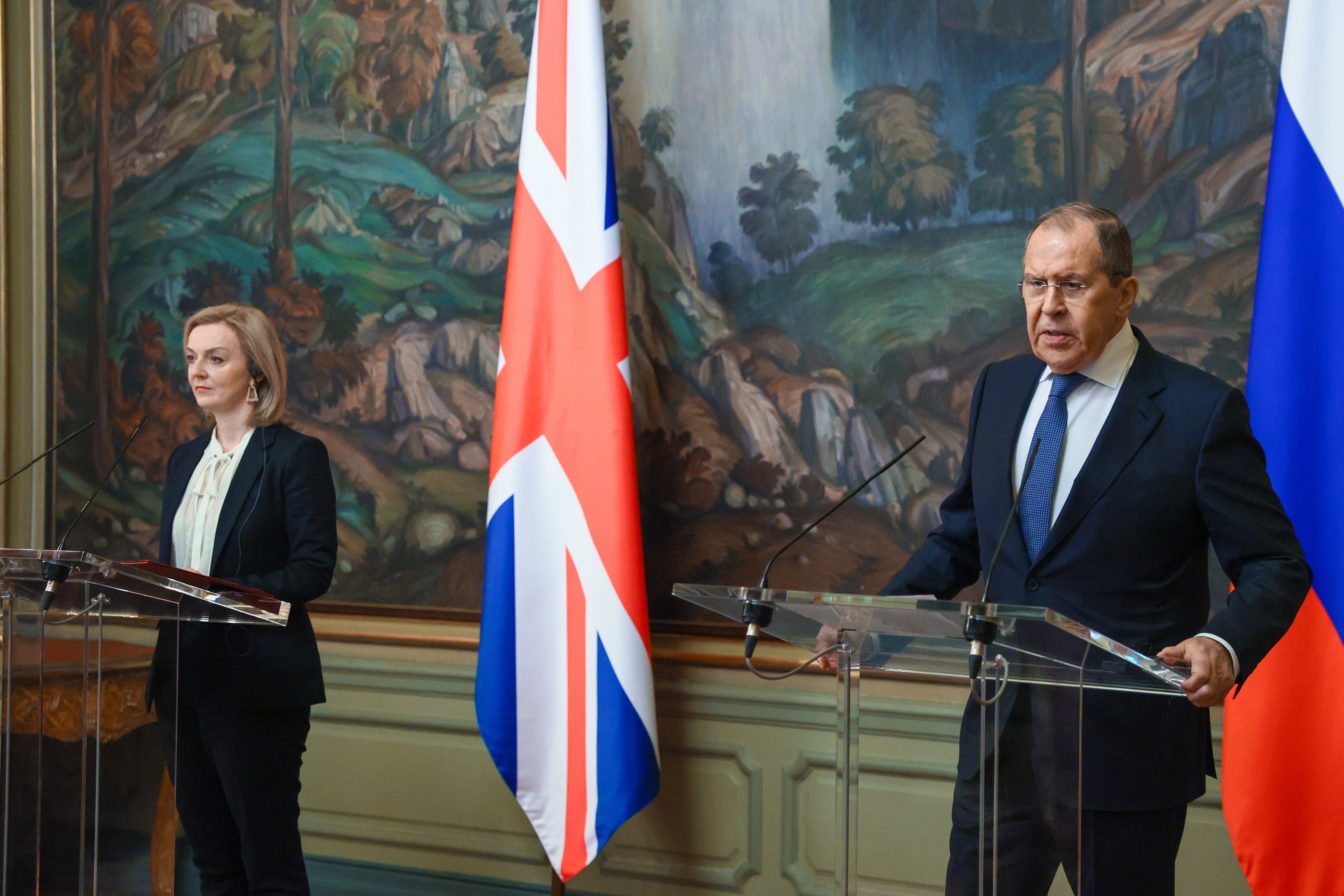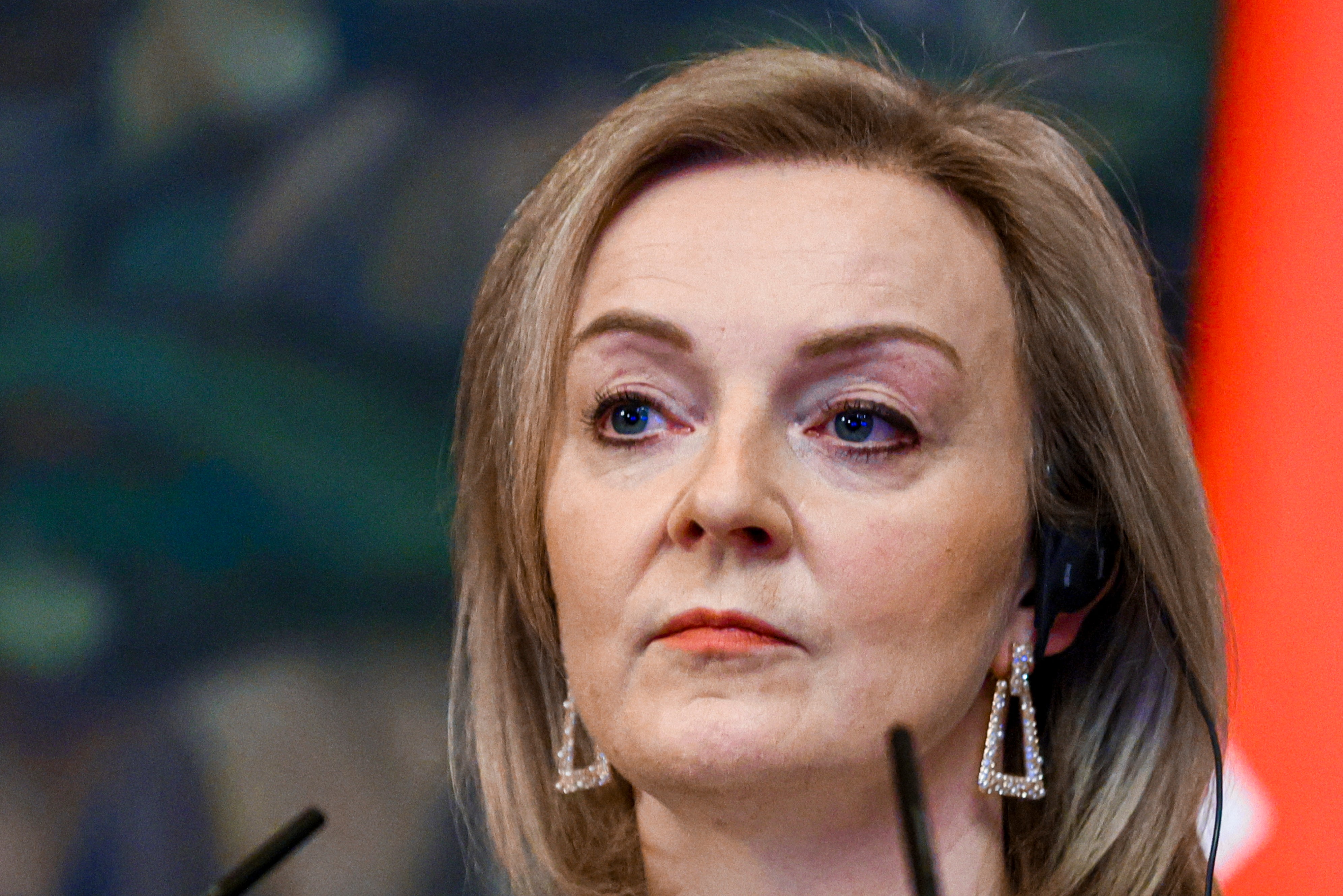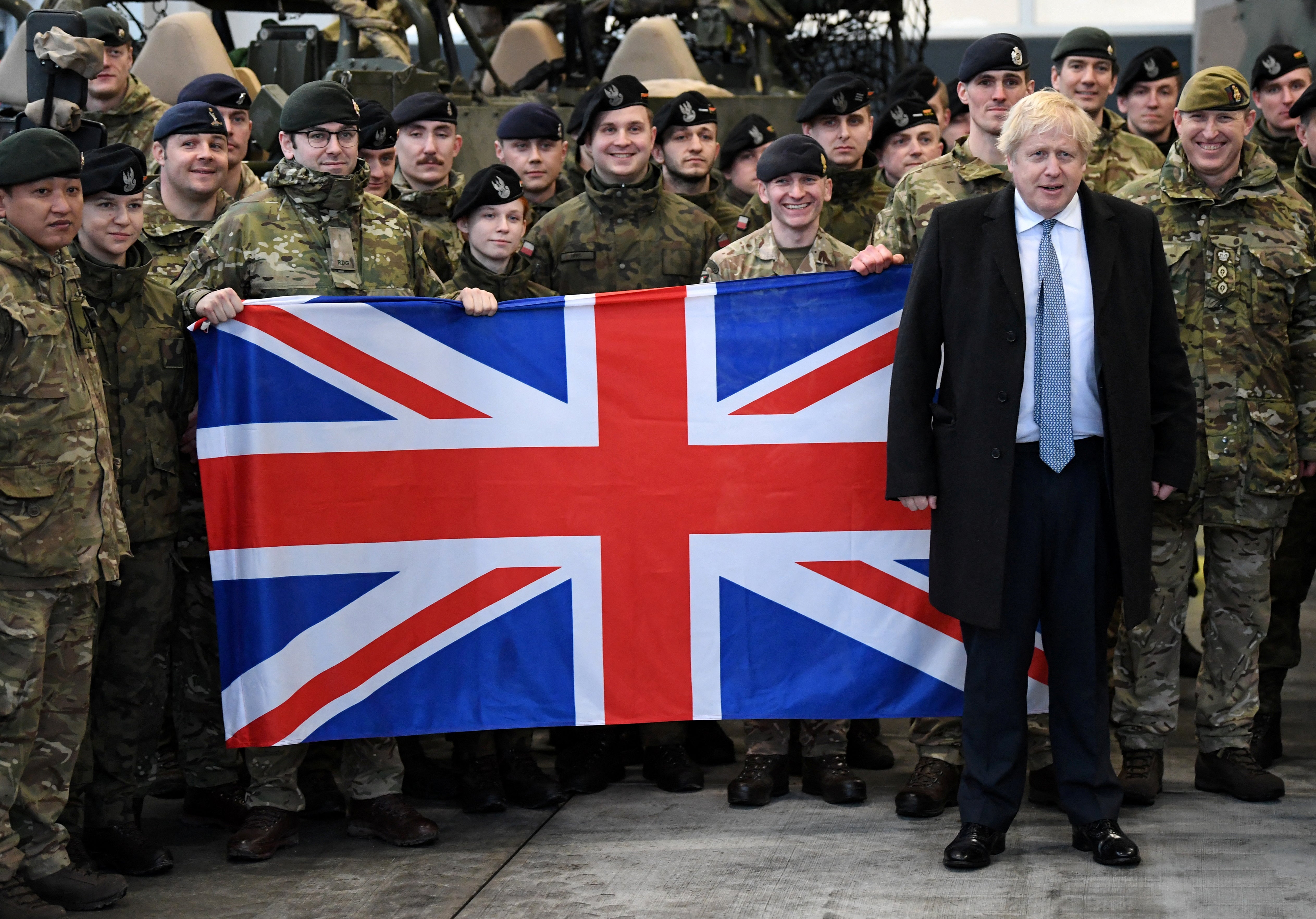Undiplomatic: Russia’s Sergei Lavrov says Liz Truss Moscow meeting was like ‘talking to a deaf person’
Foreign secretary was in Moscow to talk about the Ukraine crisis

Your support helps us to tell the story
From reproductive rights to climate change to Big Tech, The Independent is on the ground when the story is developing. Whether it's investigating the financials of Elon Musk's pro-Trump PAC or producing our latest documentary, 'The A Word', which shines a light on the American women fighting for reproductive rights, we know how important it is to parse out the facts from the messaging.
At such a critical moment in US history, we need reporters on the ground. Your donation allows us to keep sending journalists to speak to both sides of the story.
The Independent is trusted by Americans across the entire political spectrum. And unlike many other quality news outlets, we choose not to lock Americans out of our reporting and analysis with paywalls. We believe quality journalism should be available to everyone, paid for by those who can afford it.
Your support makes all the difference.A high-profile diplomatic meeting between British foreign secretary Liz Truss and her Russian counterpart Sergei Lavrov on the festering Ukraine crisis on Thursday, ended up descending into accusations, recriminations and sarcastic taunts about the British foreign secretary’s supposed lack of geographical knowledge.
With Ms Truss warning of new sanctions against Russia, the talks in Moscow, the latest in a series of prominent efforts to avoid war in Europe, ended up being some of the most acerbic to have taken place yet, with Mr Lavrov claiming it was “like the conversation with a deaf person… who is here, but does not hear”.
Ms Truss had earlier warned Russia about the repercussions of military action, saying: “This would be a prolonged and drawn-out conflict. The UK and our allies would put in place severe sanctions targeting individuals and institutions.”
The icy Moscow meeting came on a day of fevered British political activity with Boris Johnson meeting Nato secretary-general Jens Stoltenberg in Brussels before travelling to Poland and warning that Europe was entering its “most dangerous moment” in decades.
Meanwhile, Russian troops began 10 days of military exercises with neighbour Belarus.
The British effort to avert war in eastern Europe came after similar moves by French leader Emmanuel Macron, who visited Moscow earlier this week to speak to Russian president Vladimir Putin.
Ms Truss said she was in Russia to “pursue the path of diplomacy” but her discussions with Mr Lavrov were decidedly fractious.
At a press conference, there was an exasperated sigh from Mr Lavrov when Ms Truss went on to insist that London “is resolute in pursuing a diplomatic path” to try to prevent a conflict taking place, something “Boris Johnson is very much behind”.
Mr Lavrov, referring to the interaction said: “It’s like when they say that Russia is waiting for the ground to freeze so that tanks can easily enter Ukraine. It seems that our British colleagues were on similar ground today, off which bounced all the facts we presented them.”
Then declaring “ideological approaches, ultimatums and moralising is a road to nowhere”, the Russian foreign minister stalked off, awkwardly leaving Ms Truss standing alone on the podium at the end of the conference.
But tales of a fractious first meeting between Mr Lavrov – one of longest serving foreign ministers in the international scene – and Ms Truss – one of the newest – did not end there.
Kommersant, the Russian newspaper reported that behind the scenes when Ms Truss demanded that Russia pulls back its force from Ukraine’s borders, Mr Lavrov asked: “You do recognise Russia’s sovereignty over the Rostov and Voronezh regions?"
After a brief pause the British foreign secretary replied: “Great Britain will never recognise Russia’s sovereignty over those regions.” The two regions are, of course, parts of Russia as, according to the report, the UK’s ambassador to Moscow, Deborah Bronnert, had the delicate task of explaining to her foreign secretary.

Later the British embassy in Moscow seemed to confirm the apparent gaffe, tweeting (in Russian): “During the meeting it seemed to me that Minister Lavrov was talking about a part of Ukraine. I have made clear that these regions [Rostov and Voronezh] are part of sovereign Russia.”
A Foreign Office official refused to comment on whether Ms Truss may have confused Rostov and Voronezh with Donetsk and Luhansk in eastern Ukraine, which became separatist republics, with Russian backing, following the conflict of seven years ago.
This is the second time that the Kremlin has mocked Ms Truss’s alleged issues with geographical locations. Last week, Russia’s foreign ministry mocked the foreign secretary for saying Britain was sending supplies to its “Baltic allies across the Black Sea” – two bodies of water that are 700 miles apart.
Subsequently, Russian Foreign Ministry spokesperson Maria Zakharova wrote in a blog post. “If anyone needs saving from anything, it’s the world, from the stupidity and ignorance of British politicians.”
The Foreign Office later said Ms Truss had been talking about separate geographic areas of support.

Meanwhile, in Warsaw, Mr Johnson said that he believes Mr Putin has not yet decided what he might do with Ukraine, adding that the west must use “sanctions and military resolve plus diplomacy”.
“Poland and the UK won’t accept a world in which a powerful neighbour can bully or attack,” he said before meeting British soldiers in Poland. He added that if the Russians “want less Nato on their western borders, as it were, this is exactly the wrong way to go about it”.
The new German chancellor Olaf Scholz, speaking in Berlin on Thursday, warned Russia of “serious” economic and political consequences.
Meanwhile, Ukraine claimed that Russia had blocked its access to the sea as it moved ships for exercises in the Sea of Azov and the Black Sea set to take place next week.



Join our commenting forum
Join thought-provoking conversations, follow other Independent readers and see their replies
Comments